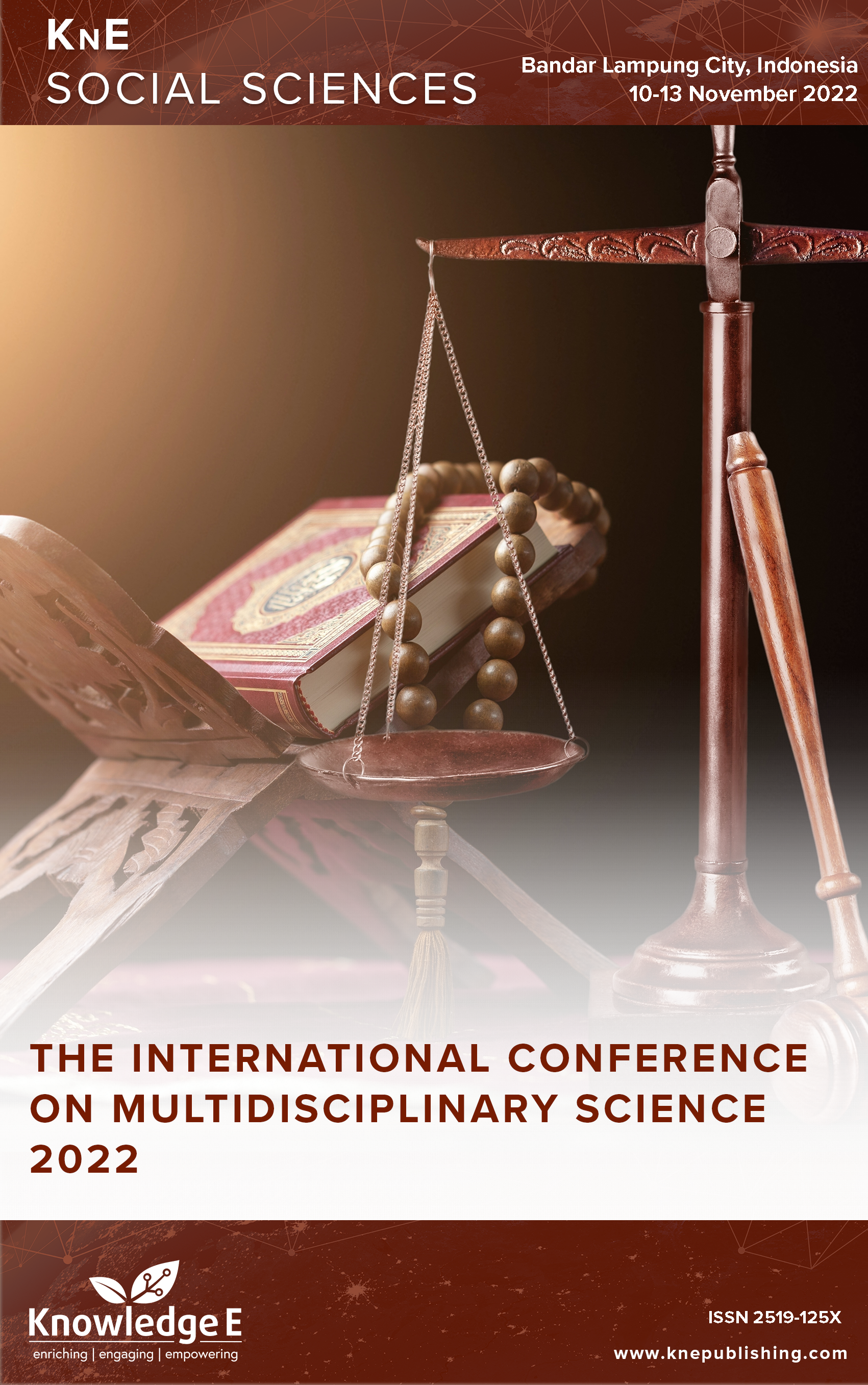Family Matters: Understanding the Relationship Between Family Background, Parenting Style, and Youth Political Behavior
DOI:
https://doi.org/10.18502/kss.v8i16.14044Abstract
This study aimed to understand the relationship between family background and parenting style on youth political participation. By using quantitative methods, this research involved adolescents as the research sample. The sampling technique used is purposive sampling. Data collection was done using measuring tools such as the background scale family, parenting style scale, and political participation scale. Data were obtained and analyzed using multiple regression test with the help of SPSS 22.0 software for Windows. The results showed that there is a relationship between family background and parenting style on youth political participation. Furthermore, the relationship between parenting style and youth political participation are being discussed.
Keywords: family background, parenting style, political behavior
References
[2] Surbakti R. Memahami ilmu politik. Jakarta: Jakarta: Gramedia Widiasarana Indonesia; 2010.
[3] Baxter L, Justin M, Rust L. Sharing family living. United States: USA: J.B. Lippincott Company; 1951.
[4] Bronfenbrenner U. The ecology of human development. United States: USA: Harvard University Press; 1979.
[5] Reiss I. Family system in America. 3rd edition. United States: US: Holt, Rinehart and Winston, Inc; 1980.
[6] Berns R. Child, family, school, community: Socialization and support. London: London Sidney Tokyo: Hardcourt Brace College Publisher; 1985.
[7] Almond GA, Verba S. Budaya Politik. Jakarta: Bina Aksara; 1984.
[8] Astrika L. Intensi memilih mahasiswa dalam pemilihan kepala daerah (pilkada) tahun 2015 ditinjau dari pola asuh demokratis orang tua dan konformitas teman sebaya. J Ilm Ilmu Pemerintah. 2016;2(2):5–11.
[9] Astuto J, Ruck MD. Early childhood as a foundation for civic engagement. In Sherrod LR, Torney-Purta J, Flanagan CA, Sherrod LR, Torney-Purto J, Flanagan CA (Eds.). Handb Res Civ Engagem Youth. 2010;249–275.
[10] Patterson M, Bigler R, Pahlke E, Brown C, Hayes A, Ramirez M, et al. Toward a development science of politics. Monogr Soc Res Child Dev. 2019;84(3):7–185.
[11] Torney-Purta J. The development of political attitudes in children. Routledge: Routledge; 2017.
[12] Shabrina SIN. Pengaruh Keluarga terhadap Perilaku Politik dilihat dari Latar Belakang Keluarga dan Sosialisasi Politik dalam Keluarga. Pengaruh Keluarga Terhadap Perilaku Politik Dilihat Dari Latar Belakang Keluarga Dan Sosialisasi Politik Dalam Keluarga. Jakarta: Fakultas Ilmu Sosial Dan Ilmu Politik UIN Syarif Hidayatullah; 2018.
[13] Healy A, Malhotra N. Childhood socialization and political attitudes: Evidence from a natural experiment. J Polit. 2013 Oct;75(4):1023–1037.
[14] Santolupo S, Pratt MW. Age, gender, and parenting style variations in motheradolescent dialogues and adolescent reasoning about political ıssues. J Adolesc Res. 1994 Apr;9(2):241–261.
[15] Rhee K. Childhood overweight and the relationship between parent behaviors, parenting style, and family functioning. Ann Am Acad Pol Soc Sci. 2008 Jan;615(1):11– 37.
[16] Maholmes V. 51Parenting and family matters: Contrasting parenting and family processes examining family strengths and assets. Maholmes V, editor. Fostering resilience and well-being in children and families in poverty: Why hope still matters. Oxford University Press; 2014. p. 0.
[17] Shahsavari M. A general overview on parenting styles and its effective factors. Aust J Basic Appl Sci. 2012;6(8):139–142.
[18] Smetana JG. Current research on parenting styles, dimensions, and beliefs. Curr Opin Psychol. 2017;15:19–25.
[19] Gniewosz B, Noack P, Buhl M. Political alienation in adolescence: Associations with parental role models, parenting styles, and classroom climate. Int J Behav Dev. 2009 May;33(4):337–346.
[20] Ferguson ED, Hagaman J, Grice JW, Peng K. From leadership to parenthood: The applicability of leadership styles to parenting styles. Gr Dyn Theory, Res Pract. 2006 Mar;10(1):43–55.
[21] Slone M, Shechner T, Farah OK. Parenting style as a moderator of effects of political violence: Cross-cultural comparison of Israeli Jewish and Arab children. Int J Behav Dev. 2011 Jun;36(1):62–70.

